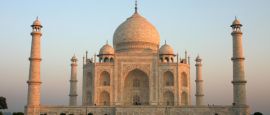India Health Care and Vaccinations
| Title | Special precautions |
|---|---|
| Diphtheria |
Yes |
| Hepatitis A |
Yes |
| Malaria |
Sometimes |
| Rabies |
Sometimes |
| Tetanus |
Yes |
| Typhoid |
Yes |
| Yellow Fever |
No* |
Healthcare facilities in India vary widely in quality and accessibility. Major cities such as Delhi, Mumbai, Chennai, Bengaluru and Hyderabad have excellent private hospitals and clinics that meet international standards, with English widely spoken by medical staff. In smaller towns and rural areas, facilities can be basic, so travellers with serious medical needs are advised to seek treatment in larger cities whenever possible. Travel insurance that covers private healthcare and medical evacuation is strongly recommended.
Pharmacies are widespread and easy to find, particularly in urban areas. Many medicines that require prescriptions in Western countries are available over the counter in India, although quality and storage conditions can vary. Travellers should bring a supply of any essential prescription medication, along with a copy of the prescription and a doctor's letter where possible, as brand names and formulations may differ. Controlled drugs, including strong painkillers and some psychotropic medicines, should be declared on arrival.
Emergency services are available in major cities, but response times can be inconsistent. Private hospitals often require payment or proof of insurance before treatment is provided, even in urgent cases. Ambulance services exist but are not always reliable outside major urban centres, so hotels or local contacts may assist in arranging transport if needed.
Tap water in India is not considered safe to drink for visitors. Travellers are strongly advised to use bottled or properly filtered water for drinking and brushing teeth, even in major cities and reputable hotels. Bottled water is widely available, but visitors should always check that the seal is intact. When it comes to food and dairy products, caution is advised: avoid unpasteurised milk, ice cream from street vendors, and dishes made with raw or undercooked ingredients. Freshly cooked food served hot is generally safe, while raw salads, cut fruit, and food that has been sitting out should be avoided unless prepared in reputable establishments.
Visitors to India should be aware of a range of risks that are more logistical and environmental than violent. Road safety is a major concern, as traffic conditions can be chaotic, road rules unevenly enforced, and accidents common, particularly outside major cities and after dark. Petty crime such as pickpocketing and bag snatching occurs in crowded areas, markets, and public transport, so valuables should be kept secure and out of sight. Women travellers may face unwanted attention in some areas and are advised to dress conservatively, avoid isolated places after dark, and use reputable transport.
Health-related risks include heat exhaustion during the hotter months, especially in northern and central regions, as well as mosquito-borne diseases such as dengue and malaria in certain areas. Travellers should use insect repellent and take precautions against sun exposure. Natural hazards such as monsoon flooding, landslides in hilly regions, and occasional cyclones along the eastern and western coasts can disrupt travel seasonally. Political demonstrations and local strikes do occur and can affect transport and access to services, so visitors should monitor local news and follow advice from local authorities.
Do you have any Feedback about this page?
© 2026 Columbus Travel Media Ltd. All rights reserved. No part of this site may be reproduced without our written permission, click here for information on Columbus Content Solutions.









 You know where
You know where
